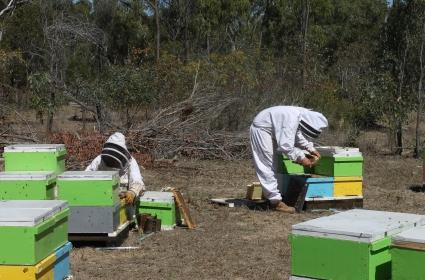
Bee-aware: Permit Now Required to move bees into Goondiwindi Region as state government declares Queensland ‘biosecurity zone’
« Back- The Queensland Government has established a new biosecurity zone, including the Goondiwindi Region, to further protect our beekeeping industry from the threat of varroa mite coming into our state.
- Under the Biosecurity Act, a permit is now required when moving bees and their products into Queensland.
- While the Varroa mite has been detected in other states and territories, Queensland remains free from the pest.
The Queensland Government has established a new biosecurity zone to safeguard apiaries throughout the state from the spread of varroa mites present in other states and territories.
This declaration, which covers the whole state of Queensland and includes the Goondiwindi Region, is critically important for both pollination of plants and food production.
Mayor of the Goondiwindi Region the Honourable Cr Lawrence Springborg AM said the Goondiwindi Region is home to several local apiarists and amateur beekeepers.
“They play a crucial role in the agriculture industry by providing pollination services to increase crop yields and improve the overall quality of a variety of crops within the region,” the Mayor said.
The declaration announced early this month states that beekeepers and farmers cannot move bees, beehives, used beekeeping equipment or bee products including unprocessed honey into Queensland from states or territories where varroa mite has been found unless they have a permit.
The Queensland Government directive states that beekeepers situated in the New South Wales (NSW) General Emergency Zone must apply for a permit to transport bees, beehives, beekeeping equipment, or bee products including raw honey into the biosecurity zone.
“Positive action has been taken to preserve the local bee populations and prevent the varroa mite from spreading into our region and the state,” Cr Springborg said. “I urge everyone to stay informed and to do their part in keeping this threat under control.”
Local apiarists and beekeepers can apply for a permit or stay up-to-date about current requirements in Queensland through the Department of Agriculture and Fisheries website: https://www.business.qld.gov.au/industries/farms-fishing-forestry/agriculture/animal/industries/bees/qld/moving
Varroa mites are tiny red-brown external parasites that feed and reproduce on bee larvae and pupae in the developing brood, transmitting numerous viruses and causing malformation of bees. Varroa mite numbers build up over time, eventually killing bee nests and hives.

